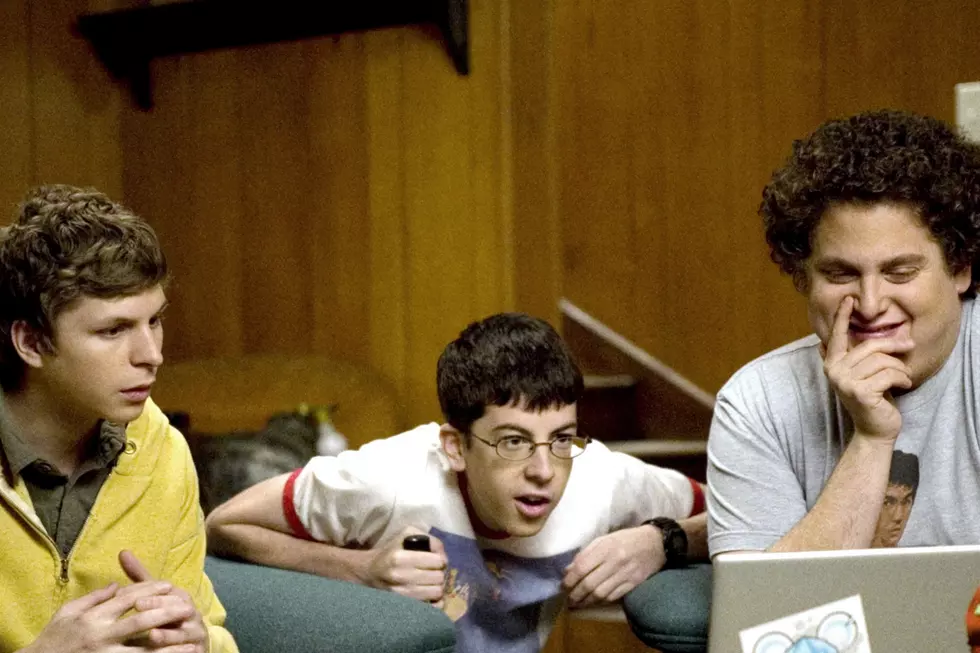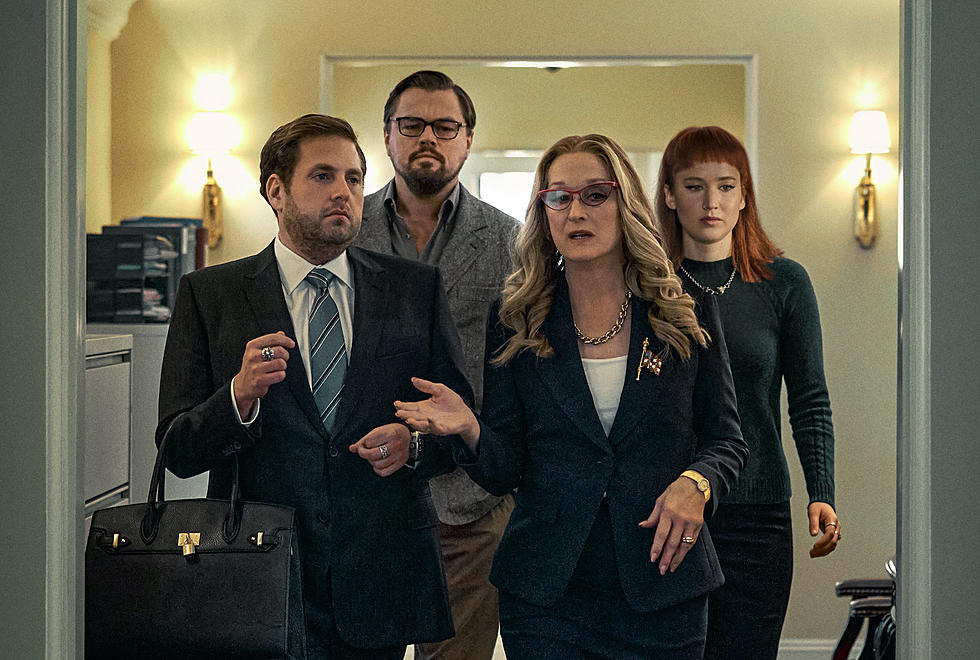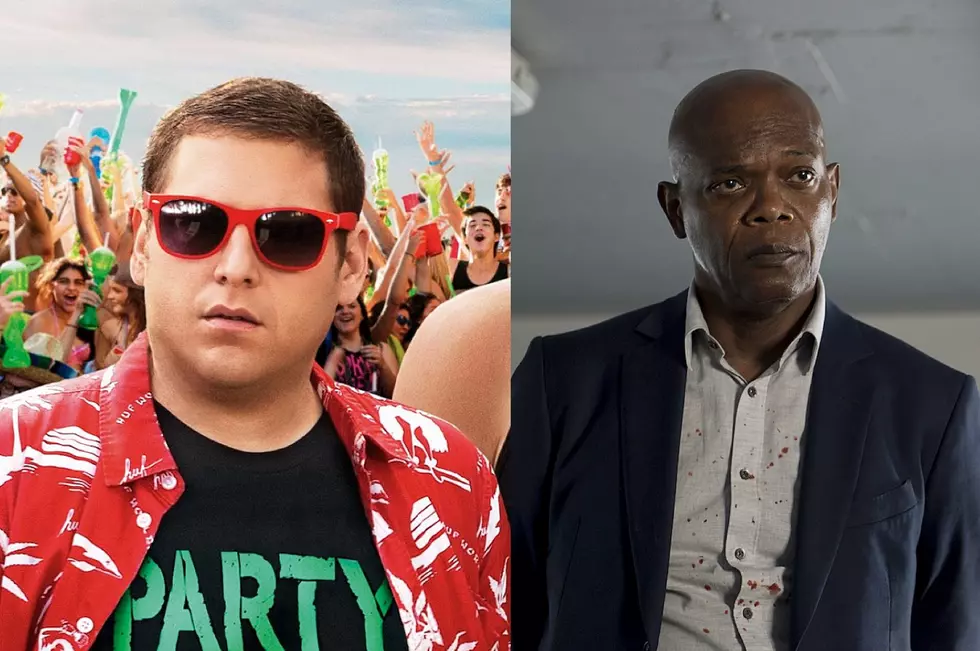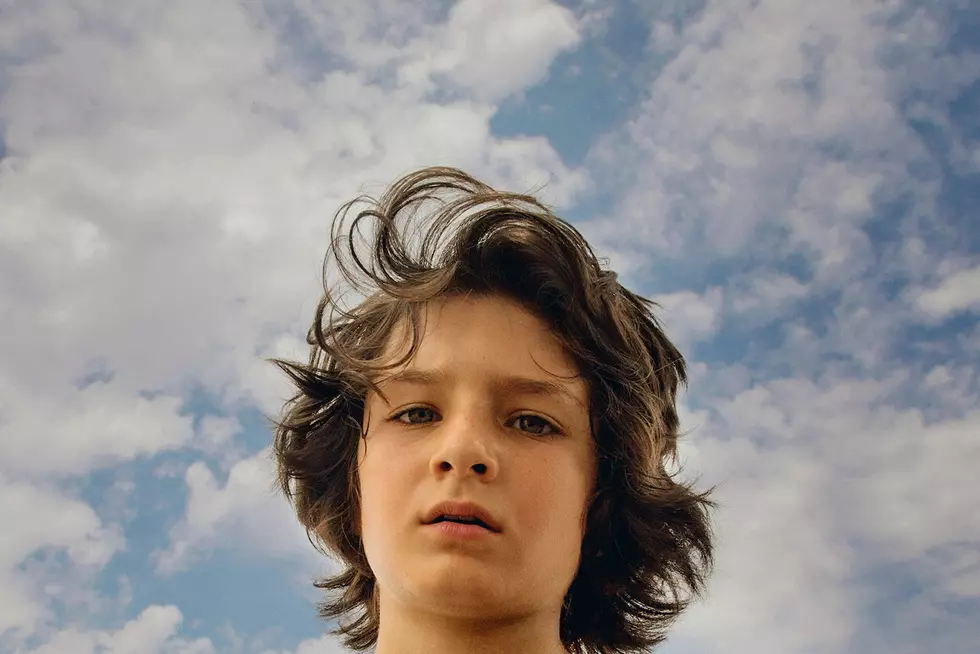
‘Mid90s’ Review: Jonah Hill’s Directorial Debut Is Superficially Authentic
Jonah Hill will be the first to tell you (repeatedly) that he’s spent the past 15 years in one of the best possible film schools, working with some of the most beloved writers and directors in America: Martin Scorsese, Judd Apatow, Seth Rogen and Evan Goldberg and Bennett Miller, to name a handful. It’s not surprising, then, that Hill’s directorial debut is handsomely-made and well-edited, or that it authentically captures a moment in time — 1995 to be exact — with a specificity that isn’t precious about its own nostalgia. Unfortunately, Mid90s isn’t anything you haven’t already seen numerous times before.
If you‘ve seen (and/or enjoyed) the films of Harmony Korine or Larry Clark, or even more contemporary filmmakers like Sean Baker and Josh and Benny Safdie, then you won’t find anything particularly remarkable about Mid90s. Set in and around L.A. in 1995, Hill’s directorial debut (which he also wrote) follows Stevie (Sunny Suljic), a fatherless pre-teen living with his abusive older brother Ian (a very broody Lucas Hedges) and their single mom (Katherine Waterston in the most thankless role of her life) — whose name is apparently Dabney, though I’m fairly certain it’s never once uttered in the film.
Searching for the family life he’s sorely lacking at home, Stevie becomes fascinated by a local group of skateboarding teens, played by a cast of non-actors that Hill plucked straight from the streets of L.A. Na-kel Smith, Olan Prenatt, Gio Galicia and Ryder McLaughlin all lend Mid90s some additional authenticity (and a little street cred), and Smith and McLaughlin in particular are given a couple of the film’s only really soulful moments. Suljic, who previously starred in Yorgos Lanthimos’ The Killing of a Sacred Deer (and has the most interesting career of anyone his age, clearly), carries the majority of the film as a wide-eyed miniature tourist just looking for a place to belong, and people who might understand the pain he’s going through.
But that’s about the extent of narrative — and character — substance in Mid90s, a film that doesn’t offer much in the way of character depth, or anything really resembling an arc, for that matter. Not that an 11 or 12-year-old boy is likely to learn much over the course of such a small portion of his coming of age, nor is he apt to treat women with any real concern or curiosity beyond what their bodies might do for (or to) him.
That doesn’t excuse the fact that, save for Stevie, every character in this film is more of a caricature; the women and girls specifically are barely written as actual people, and Smith’s Ray comes dangerously close to becoming the “magical negro” archetype. One could argue that this is merely the film’s point of view. It is a story about a young white boy and his coming of age, not of his mother’s struggles or of the teen girls that party with Stevie and his new friends, or of the hardships faced by minority teens like Ray and Prenatt’s F—ks—t (yes, really his name), desperate to break out of their own familial prisons.
There is one troubling scene in particular that exemplifies the key issue with Hill’s script, and possibly also his perspective. Though not as problematic as Larry Clark’s Kids (a film that was actually released in 1995, when Mid90s takes place), it’s still fairly troubling: At a late night party, Stevie gets friendly with Estee (Alexa Demie, playing almost the exact same role here as she did in Brigsby Bear), who asks if he’s ever been with a girl before. Estee is clearly a few years older than Stevie and thinks she’s doing him a favor by taking him to a bedroom, where they take off (most of) their clothes and fondle each other. Hill is careful to keep the focus mostly on their making out, and exits the room before any actual fooling-around takes place.
In some descriptions of Mid90s, Stevie is described as a 13-year-old boy (Suljic is 13 in real life), but he reads as even younger in the film — especially opposite Demie, who appears to be playing a girl of at least 15 (the actress’ real age is unknown). It’s not a question of morality, but of perspective. In that scene, the kids — like actual kids — have no idea what they’re doing, really. As adults, we know that what’s happening in that bedroom between two inebriated children is not okay, but the scene lacks both nuance and a sensitive understanding of Estee, which indicates that maybe Jonah Hill — the adult man and director — doesn’t know that this isn’t okay. At the very least, he’s probably not the best person to tell this story.
That may also be the larger issue at play in Mid90s, which often feels like white boy wish-fulfillment or cultural tourism. In many ways, Stevie is living the life that his older brother Ian — in his baggy jeans, close-cropped hair and earrings — so obviously and desperately wants, if only his own toxic masculine insecurity would stop getting in the way. Perhaps by proxy, Stevie is living the life that Hill — who grew up in an affluent family and attended private school in L.A. — dreamt of having. It certainly reads that way; despite Ray’s monologue about everyone having their own private struggles, Hill depicts these lower-class teens (one of whom can’t even afford socks) as aspirational. It’s little more than another brand tucked among the Nintendos and Teenage Mutant Ninja Turtles bedsheets and Tommy Hilfiger overalls.
That isn’t to say that someone like Jonah Hill can’t or shouldn’t be able to tell a story about troubled teens on the fringes of lower-class society. Sean Baker brought immense empathy and depth to Tangerine, a story about two black trans women and sex workers, and The Florida Project, a story about exceedingly poor kids living in a Florida motel and a single mother struggling to keep her s—t together for one of them. Baker shares nothing in common with any of these characters aside from his own status as a human being. The Safdie brothers directed Heaven Knows What, about a heroin addict living on the streets of New York, and Good Time, about an opportunistic bank robber and his developmentally disabled brother. Like Baker, the Safdies have nothing in common with their characters, and yet…
Perhaps it’s that Baker and the Safdie brothers have taken the time to explore the worlds in which their characters live. Like Mid90s, their films also utilize non-actors, or what Baker calls “first-timers,” to tell more authentic stories. But movies like The Florida Project, Tangerine and Heaven Knows What were the result of more collaborative processes with those newcomers, whose real lives occasionally inform the cinematic narrative.
On the surface, Mid90s looks and sounds remarkably authentic: The music, which Hill supervised (and which made Trent Rezor and Atticus Ross’ score all but useless) is true to the era without being obnoxious about it; it’s genuine in its affection for a specific time and place, but never veers into nostalgia porn. But for as much as it looks the part, Mid90s never feels real — because its characters just don’t seem to feel much of anything at all.
More From ScreenCrush









